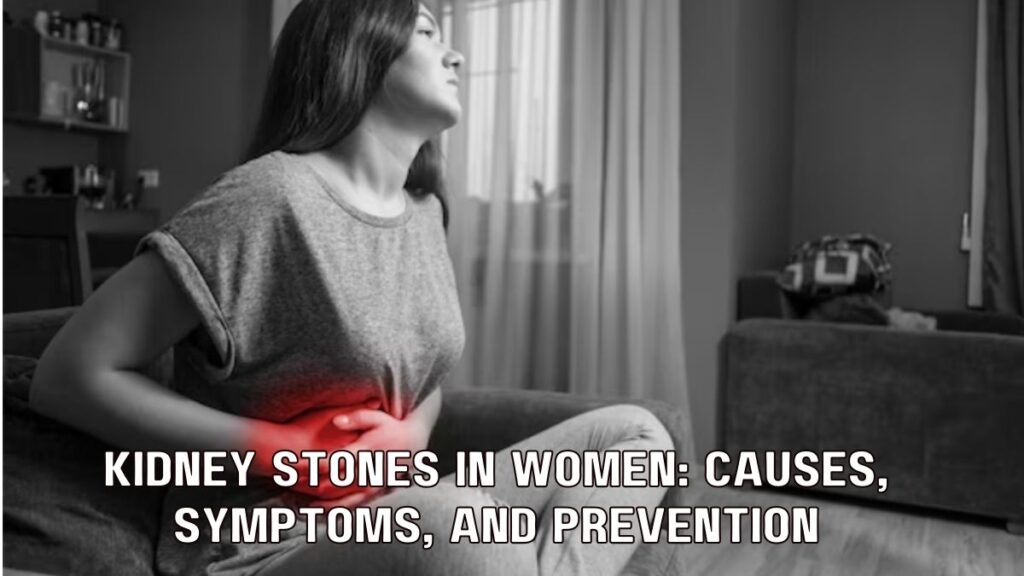Introduction
Kidney stones are a common and painful condition that can affect anyone, regardless of gender. However, there are certain factors that make women more susceptible to developing kidney stones. In this blog, we’ll dive into the unique aspects of kidney stones in women, exploring their causes, symptoms, and effective prevention strategies.
Understanding Kidney Stones:
Kidney stones are solid deposits that form in the kidneys when minerals and salts in urine crystallize and stick together. They can vary in size, from a grain of sand to a golf ball, and can cause excruciating pain when they move through the urinary tract.
Why Women Are at Risk:
Anatomical Differences: Women tend to have smaller urinary tracts than men, which can make it easier for kidney stones to become stuck and cause blockages.
Pregnancy: Pregnancy can increase the risk of kidney stones due to hormonal changes and pressure on the urinary tract.
Hormonal Factors: Some hormonal conditions, like polycystic ovary syndrome (PCOS), can increase the risk of kidney stone formation.
Dietary Choices: Women who consume diets high in salt, sugar, and oxalate-rich foods (such as spinach, beets, and chocolate) may be more susceptible.
Common Symptoms in Women:
The symptoms of kidney stones in women are often similar to those in men and can include:
- Severe pain: Typically felt in the lower abdomen or side.
- Frequent urination: With a sense of urgency.
- Blood in the urine: Can make urine appear pink or brown.
- Nausea and vomiting: Due to the pain.
Prevention Strategies:
Stay Hydrated: Drinking plenty of water helps dilute urine and prevent mineral buildup.
Watch Your Diet: Reduce salt and limit high-oxalate foods. Opt for a balanced, kidney-friendly diet.
Manage Underlying Conditions: If you have conditions like PCOS or obesity, work with your healthcare provider to manage them effectively.
Maintain a Healthy Weight: Achieving and maintaining a healthy weight can reduce the risk of kidney stones.
Stay Active: Regular physical activity can help prevent stone formation.
Medication: In some cases, your doctor may prescribe medication to reduce the risk of stone formation.
Conclusion:
While kidney stones can be particularly painful and challenging, understanding the unique factors that affect women is essential for prevention and early management. By adopting a healthy lifestyle, staying hydrated, and seeking medical advice if symptoms arise, women can reduce their risk of kidney stones and enjoy optimal kidney health.

